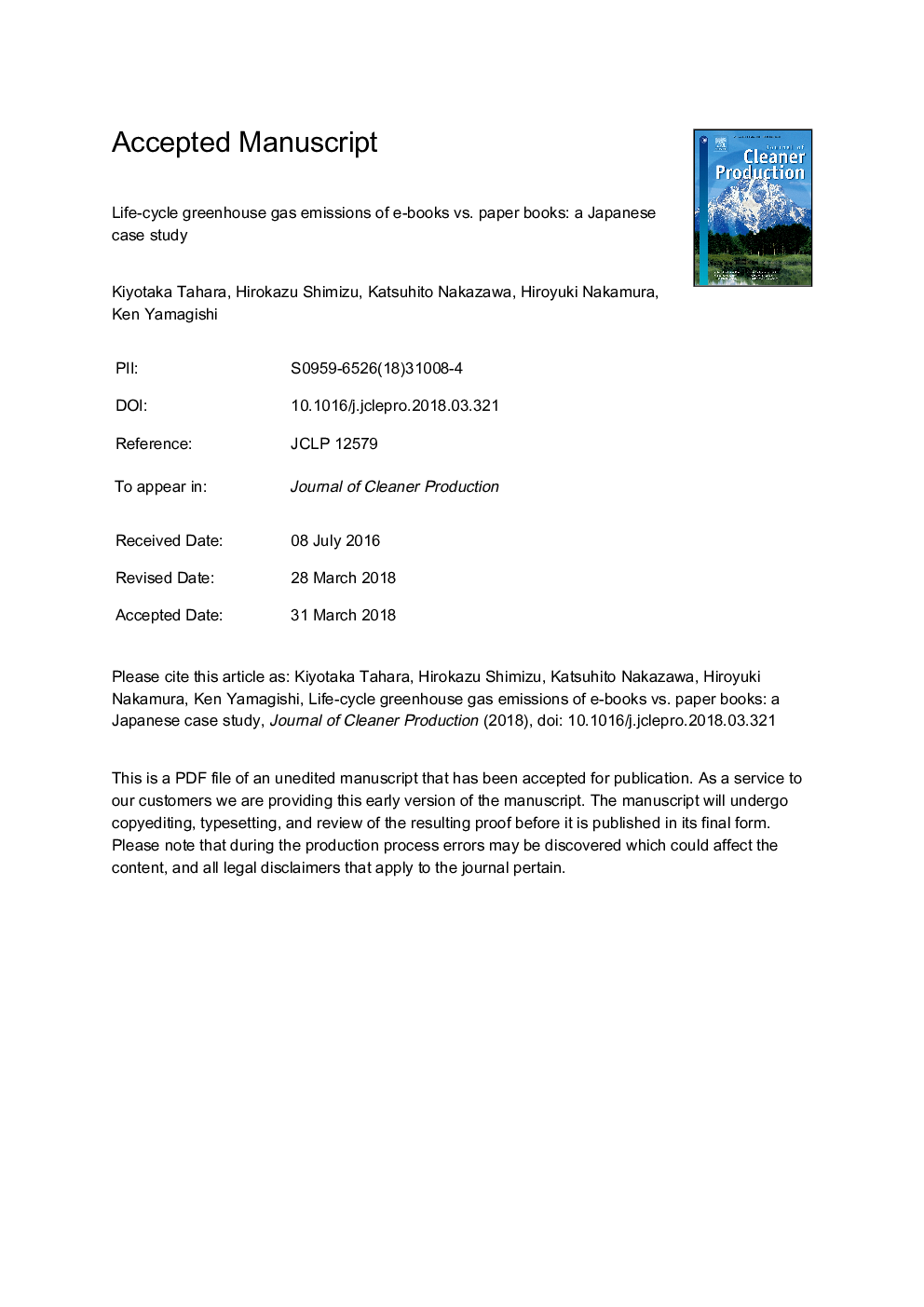| Article ID | Journal | Published Year | Pages | File Type |
|---|---|---|---|---|
| 8095060 | Journal of Cleaner Production | 2018 | 25 Pages |
Abstract
The increasing presence of e-books (electronic books) has become a major focus in countries around the world. In the United States, e-books represented 28% of the total book sales for 2012. In Japan, the conversion from paper books to e-books is expected to accelerate by the prevalent use of smartphones and tablet PCs. It is therefore important to quantitatively evaluate the environmental load of paper books and e-books for a sustainable society. In this study, paper books are compared to e-books read on different electronic devices (e-ink tablets, tablets, cell phones, smartphones, laptop computers, desktop computers and portable music players) through a case study on a 224-page book. The study is based on key primary data such as use time and reading speed for each device and aims to minimize assumptions made in other studies. GHG emissions for paper books are 1.24â¯kg-CO2e/book, and are reduced to 1.11â¯kg-CO2e/book when the effect of paper recycling is taken into consideration. The results for e-books under average use-time conditions range from 0.25 to 0.91â¯kg-CO2e/book with the e-ink tablet having the lowest emissions. When the average use time of each e-book device is applied, the paper book has a higher impact than all the e-books. However, sensitivity analysis shows that the impact of paper books can be lower than that of e-books for larger screen devices such as tablets, laptops and desktops when the reuse of books is considered or the e-book reading device is hardly used during its life cycle.
Related Topics
Physical Sciences and Engineering
Energy
Renewable Energy, Sustainability and the Environment
Authors
Kiyotaka Tahara, Hirokazu Shimizu, Katsuhito Nakazawa, Hiroyuki Nakamura, Ken Yamagishi,
